In this week’s message, we begin with the image of a watercolor world map—its softly blended greens, blues, browns, and rust hues—symbolizing how God’s love resists rigid boundaries. We explore how the parable of the Good Samaritan brings that vision into sharper focus. Rather than allowing us to shrink compassion to the neat lines we draw, Jesus invites us into something far broader.
Your question, “Who is my neighbor?” isn’t just a curious theological inquiry—it’s a dangerous attempt to limit mercy. In telling the parable, Jesus doesn’t define the neighbor; he makes us ask if we will become the neighbor. The priest and Levite play by the boundary lines while the Samaritan crosses them—paying time, money, reputation, even losing face within his own community.
Drawing on Bonhoeffer’s powerful warning that “the most dangerous question is ‘Who is my neighbor?’,” we explore how loyalty to citizenship, ideology, fear, or convenience can become lines that keep us from the compassion God calls us to. But mercy always costs—and it’s that crossing of lines that signals a radical allegiance to the Kingdom of God over any earthly divides.
Scripture: Luke 10:25–37
SERMON TRANSCRIPT:
Luke 10:25-37
We have a watercolor map that hangs in the church office. It’s been there for quite some time. Now, if you’ve seen it, then you know the way the colors run one into the other, vibrant greens and blues, burnished browns and rust. The borders of that world map are all blurred together. There are no sharp lines that say this country ends right here, and that one well, it begins here. I’ve always liked that about that particular print. That’s why I bought it a long time ago. What I haven’t liked as much about it is that it always makes me squirm a little bit at the dilemma that it presents. There is this universal truth that we have this need to draw lines, and this reality that that need is at great odds with God’s way of blending everything and everyone together like a beautiful watercolor painting, whereas we certainly want certainty. Of course, God is much more interested in the nuance where we want to claim what’s ours God. God wants us to share.
I’d say that picture that tension is a pretty good portrayal of today’s parable. Jesus tells it in response to a question that at its best sounds quite pious, but at its worst, is a very, very dangerous question. Sounds innocent enough, doesn’t it, who is my neighbor? It is a question that is looking for limitations. It’s looking for the lines, the boundaries, for the boundaries of obligation. It’s a question that wonders, who is it that we don’t have to care about quite as much? It’s a question about whether or not we can stay on this side of the road because of who it is that we see on the other side of the road.
Whereas yesterday, it was one person, it made sense to go well today, maybe not so much. Instead of Jesus directly answering the question in True Jesus form, when this dangerous question is asked, What does he do? He responds with a story. It satisfies deeply and it walks, we walk away from it feeling like we’re starving for the answer all at the same time. That’s what makes a parable a parable. After all, in God’s kingdom, neighbor isn’t a category that you fit people into. We know that. It’s the citizenship that we claim, it’s the mercy that has been offered to us that we have to choose to receive this lawyer’s question.
No offense to the lawyers among us. Is a story that is ultimately a story that is told meant to prompt one that is pretty certain of something, and he’s going to walk away feeling starved for the answer. I mean, he quotes well from Scripture at first you know about what the greatest commandment is. What’s the whole point of all of this? Love the Lord your God with everything you are, and love your neighbor as yourself. Okay? Yeah. He knows the words, but he wants to parse them. He wants to define them with lines. He wants to shrink the words. He wants to diminish the meaning. He wants to know the minimum requirement, perhaps, but nope. Jesus isn’t interested in that. He’s not going to let it happen.
Jesus, in turn, responds with a story that explodes the question. You’ve heard it many times before. You heard it earlier today, a man is beaten and left for dead. There’s a priest that crosses over and decides, nope, not for me. And then there’s the Levite, who sees and does the same. The people of faith who know the rules ultimately failed the test. Alright, we all get that right. But then there’s the Samaritan that comes along. Who is the Samaritan? We’ve heard it before, despised other than the Samaritan is the one that stops. The Samaritan is the one who sees. The Samaritan is the one that actually takes the time to act. He takes action, and then he actually pays the price at great cost, not just the financial cost and the loss of time, but something that we don’t often very we don’t really acknowledge very much is he also probably loses face with those that he comes from. You did what with who and how much?
Jesus ends the telling of the story with lobbying another question out, who is the neighbor in the story, not Who is my neighbor, but rather, are you going to be the neighbor? Make note. It’s a question that’s meant to unsettle us, to expose the lines that we’ve drawn, to ask if we’re ready to cross them, to blur them, to get out the watercolors with the paint brush.
We know this story is about crossing lines. Of course, we’ve heard it so many times before, but let me challenge us today to consider this, what borders or lines are drawn in your own life when you’re presented with the question that Jesus asked at the end of the story today, I don’t know about you, but in my piety, it’s very easy for me to point out the glaring mistake that others make where they draw their lines. But it’s not the question he’s asking. He’s saying, Hey, how about you? Where are your lines drawn?
On the neighbors that we pick are the lines that we choose, the schools that we prefer can become the lines, the conversations that we avoid become the line, the news we consume that reinforce what we already believe. They draw lines. And then there are those lines that sit buried in our hearts, the quiet predator prejudice that we don’t name, the fear of difference, the habit of ignoring pain that feels like it’s way too far away.
Jesus doesn’t ask us to erase all the differences. Of course, he asked us to refuse to let them decide who we’re going to love. He calls us to see humanity on the other side of the road. He calls us to recognize the image of God and those that we are very quick to dismiss. He tells a story to say there is no one that gets left behind. No one outside the reach of compassion, no one God has decided just doesn’t matter. In God’s vernacular, there is quite literally, nobody that’s illegal, nobody that doesn’t have a place in the kingdom of God.
This is a place where the colors, just like skin tones, blend together this kingdom of God. This is a place where boundaries and hearts alike are softened, where what matters isn’t the line, but the bond that we share, that all of us, ultimately, are immigrants in the kingdom of God. I’ve been thinking a lot about that lately. Do I really understand that I am an immigrant in the kingdom of God? It’s the one bond that we share. Citizens in the kingdom of God, immigrants, one and all. Welcome one and all.
Jesus doesn’t tell this parable so we can feel righteous. Aaron spoke to this earlier. It’s real in my life, too, to feel this righteousness bubbling up when we spot the priest or the Levite that’s clearly doing the wrong thing and wag our finger disapprovingly. Jesus has no interest in telling parables that reinforce that we’re on the right side. He tells the story so that we’ll see the places that we cross over to the other side and to become aware of the places in our lives where we are struggling to cross over to the other side, the times where we choose safety over compassion, the ways we justify in action with our piety or our fear or our patriotism.
But he also turns the mirror today to show us the Samaritan, the outsider that actually chooses Mercy, the enemy who becomes the neighbor. He gives a vision of God’s kingdom with no insiders or outsiders. There are no first class or second class citizens here, quite frankly, there are no aliens here, just immigrants, one and all citizens, one and all in the kingdom of God.
And so herein lies the struggle. Which is it, am I a citizen of the kingdom of the United States of America, as I point to the flag in our sanctuary, or am I citizen first in the kingdom of God? Which is it Jesus? We say? And Jesus says, you know, before I answer that question, let me tell you a story.
Dietrich Bonhoeffer warned us that the question, Who is my neighbor is perhaps one of the most dangerous questions that’s ever been asked before. I will never forget the first time that I’ve ever went to the Holocaust Museum in Washington, DC, dreading it, dreading it, and as I entered being surprised that I was handed a card with somebody’s picture and name on it and a little bit of backstory about where they were from. Do any of you know what I’m talking about? You’ve been through this experience, you weave through the whole museum, not having any idea how this particular story turns out, and when you finally get to the very end, you learn whether or not that person died in the Holocaust or lived in spite of the Holocaust. They just wanted to be sure that we all understood that every single person that’s represented in this big, giant building has a story and a name and a background, every single one of them.
Bonhoeffer says, The Most Dangerous question, perhaps in the world, is this question of who is my neighbor. It’s not a question that wants to expand our love, but determine where the lines are going to be drawn, to know who we get to love and who we can justify not loving not seeing. It’s a question that tries to define who we don’t have to care about. And he called that question a form of rebellion against God, and he was right to carry the cost of compassion when no one else will. Is the call to love that Jesus offers in the story this day.
And you’ll note, even though we don’t want to hear this either, Jesus is not denying in the story that mercy comes for free, Mercy has cost. It will cost us something in the story we know that the Samaritan paid the cost the Samaritan pays with his time, his resources, his vulnerability, and as I said early, the inevitable disproval of his fellow Samaritans to be the one that emerges when nobody seems to think that it’s the right thing to do, or everybody’s terrified to do is truly costly, and it seems to be what the story is prompting us to consider mercy always costs something.
This invitation that we’ve received today to be part of something bigger than we are. This kingdom of Jesus is built on the opposite of anything that is exclusionary. It doesn’t grow through a fear. It doesn’t grow through building walls. It takes shape when someone chooses mercy over caution, when someone crosses a line drawn that’s meant to keep people apart when a stranger becomes neighbor because someone refused to look away, that’s the kingdom he calls for us to enter.
And you’ll note this has been a thread through all the beautiful testimonies we’ve heard today. The thread is not about later, it’s not about some day. It’s about right now, this past week, this day and the day that will follow right now, we get to choose the citizenship that he offers us. We get to carry the passport of compassion. We are called to act like people who remember our own rescue, to remember that there was a time that we cried out for help, and somebody showed up, we are called to remember that this day so that, in turn, we can respond in kind people who don’t measure worth by citizenship papers, but by shared humanity, of a God that loves all, who refuses to Turn away from suffering because it’s inconvenient or complicated and doesn’t fit the political boundaries that we’ve drawn with lines in the sand one after the other.
It doesn’t grow through fear or walls. It takes shape when we choose mercy over caution. The Samaritan didn’t run the cost benefit analysis. He didn’t check the man’s background or his papers or his citizenship. He stopped. He cared. He paid. And Jesus says, now go do the same.
This is not easy work. It is not safe and it is not popular, and it is what it will take, ultimately, to be a full citizen in the kingdom of God that actually gets to experience the joy that comes with that citizenship. It asks us to risk comfort, time, money, pride, to ask for us to put our relationships on the line. It demands that we see the person in this ditch as somebody that could have been us, because there was actually a point in time where it was us, when we’re the ones lying there, broken exposed, needing mercy that we couldn’t repay. Someone crossed over the street to help us, and somebody will again, and in between those bookends, we have the opportunity to be that neighbor.
There’s a song that inspired today’s sermon that I’ll be posting online later today, by John Guerrera, and he puts it so very well. I’ve been listening to it on repeat for the last month, he says, and this is a paraphrase, this, God is building a city where we arrive as immigrants, and you call us God citizens, and you God welcome us as children home.
This is the call. This is the promise, may we have the courage to say yes, and the faith to live as citizens in that kingdom here today, now and forevermore, and all of God’s people said, Amen.

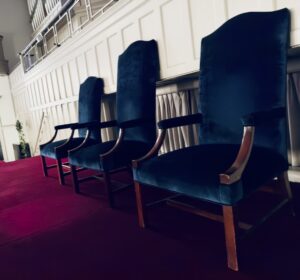

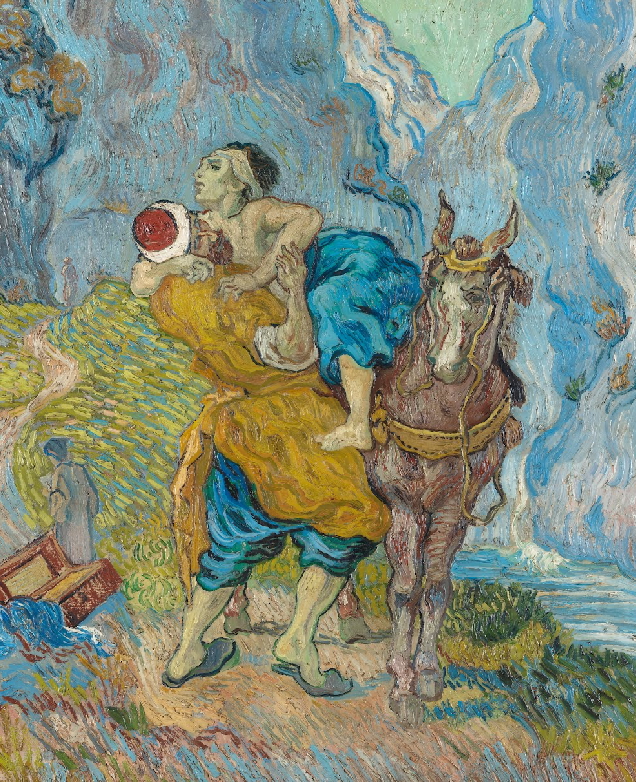


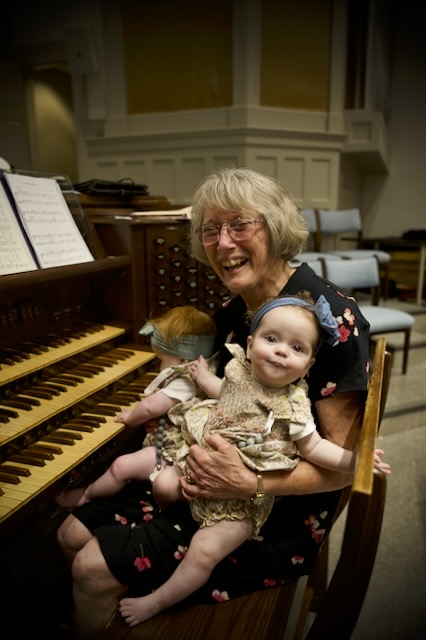
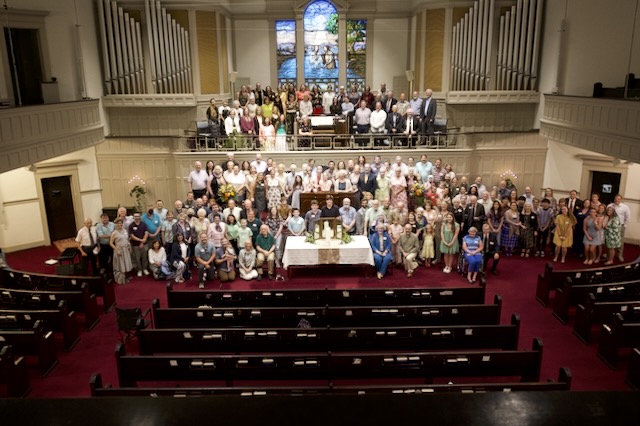
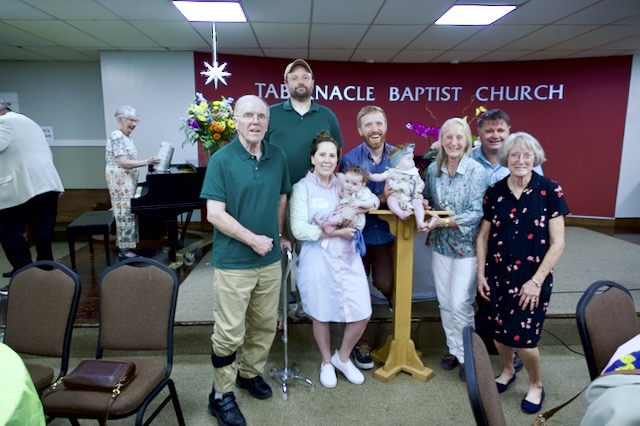
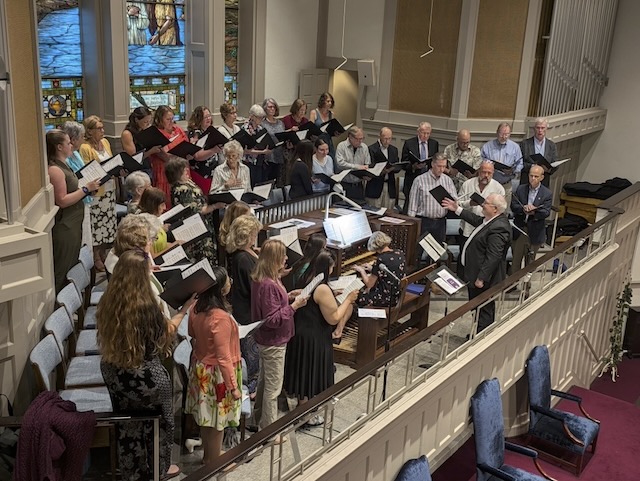
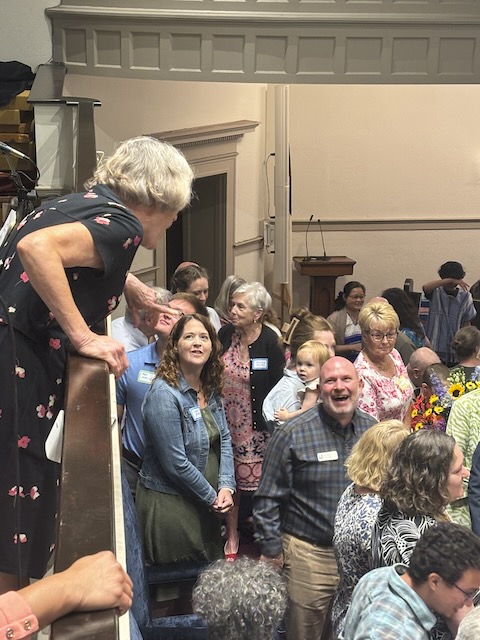
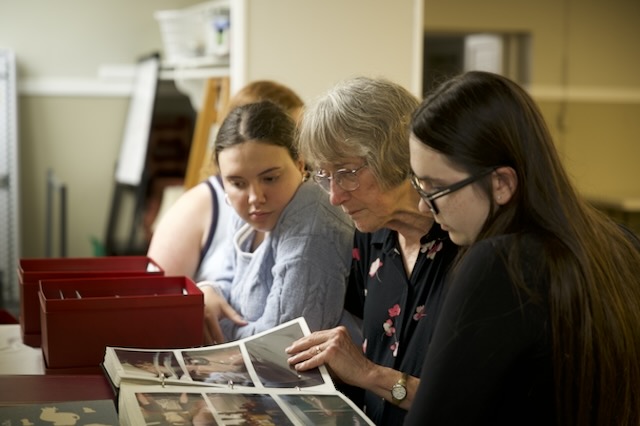
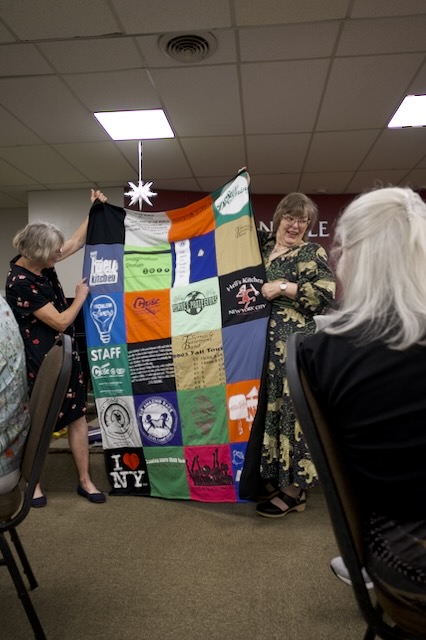
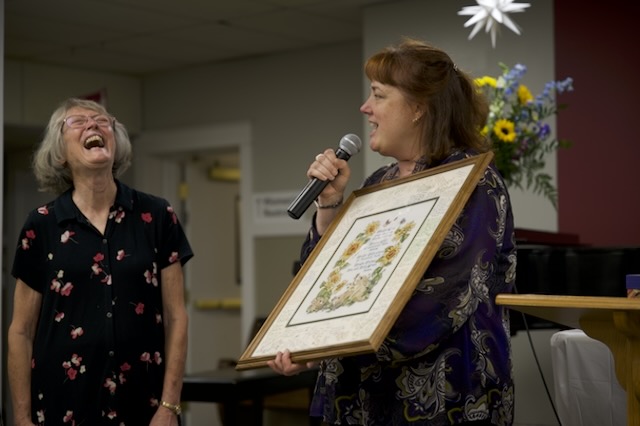
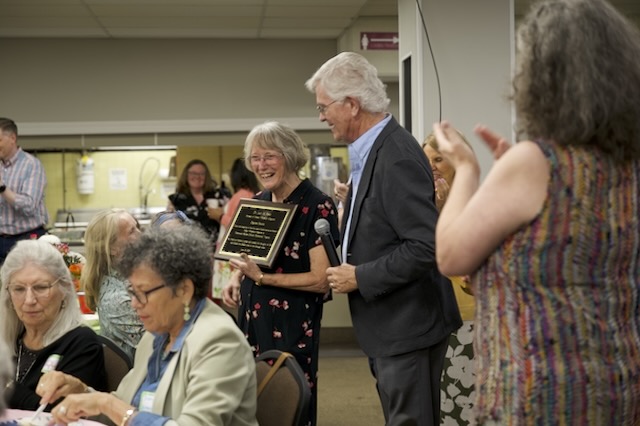
 Proposed TBC Budget for Fiscal Year 2025-26
Proposed TBC Budget for Fiscal Year 2025-26